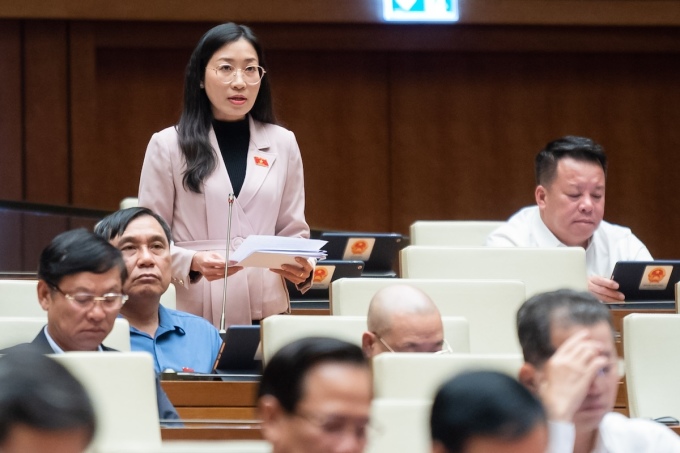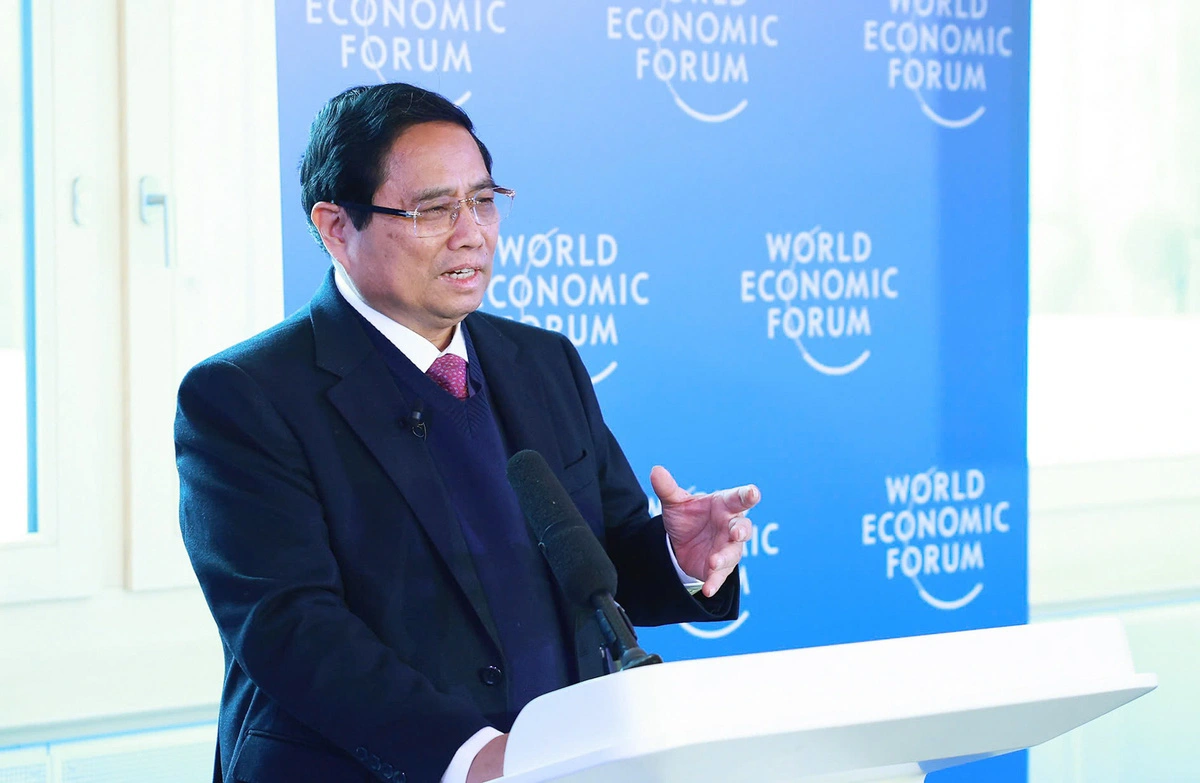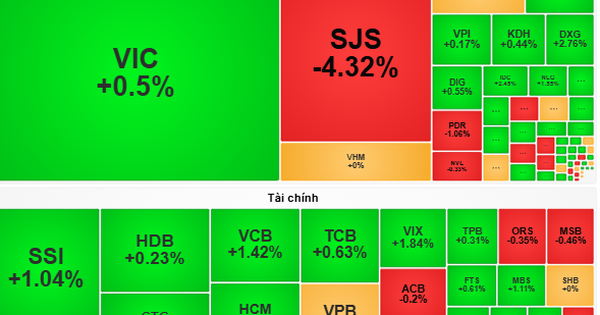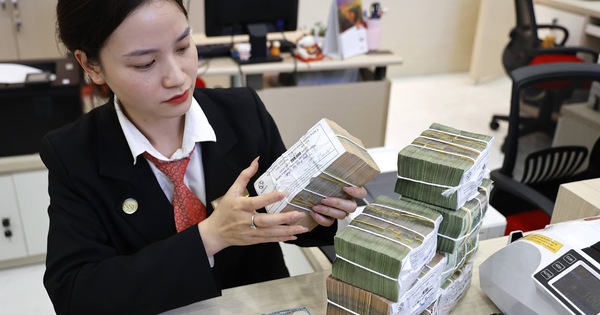Imposing a global minimum tax could lead to the risk of foreign investors suing because the incentives they enjoy are lower than the commitments, according to delegate Hoang Thi Thanh Thuy.
On the afternoon of November 20, the National Assembly discussed the draft Resolution on applying additional corporate income tax according to regulations on preventing erosion of the global tax base (global minimum tax).
The global minimum tax is an agreement reached by G7 countries in June 2021 to combat multinational corporations shifting profits to low-tax countries to avoid taxes. The tax rate will be 15% for multinational enterprises with a total consolidated revenue of 750 million euros (about 800 million USD) or more in two of the four most recent years.
This tax is not an international treaty or commitment and is not mandatory for countries to apply, but imposing this tax will help Vietnam increase budget revenue from additional tax collection, about 14,600 billion VND, and limit transfer pricing and tax evasion by foreign-invested enterprises. According to the General Department of Taxation, there are about 122 foreign corporations investing in Vietnam that are affected by the global minimum tax.
Ms. Hoang Thi Thanh Thuy, Deputy Head of the Tay Ninh Province Delegation, raised the issue of the possibility of foreign investors filing a lawsuit when Vietnam applies a global minimum tax. Because according to the Investment Law, in case the new regulations provide lower incentives than the previous incentives that investors enjoyed, they can continue to apply the old, higher incentives for the remaining time of the project.
Meanwhile, the global minimum tax rate will be 15% for multinational enterprises with a total consolidated revenue of 750 million euros (about 800 million USD) or more in two of the four most recent years. That means the incentives for investors will be reduced compared to before, and they can appeal to continue enjoying incentives and paying global minimum tax in the parent country.
In the submission, the Government said that the possibility of FDI enterprises filing a lawsuit is low because they can pay this tax in the parent country. However, according to Ms. Thuy, the risk of Vietnam being sued in cases where investors pay additional taxes in the parent country (where the parent corporation is headquartered) is real, especially with the incentives detailed in the Investment Certificate.

Ms. Hoang Thi Thanh Thuy (Deputy Head of the Tay Ninh Provincial Delegation) spoke on the afternoon of November 20. Photo: National Assembly Media
Also believing that the possibility of investors filing a lawsuit is entirely possible, according to Mr. Vu Tien Loc, Chairman of the Vietnam International Arbitration Center (VIAC), multinational companies also face difficulties in proving damages caused by tax policies.
He analyzed that the guidance document of the Organization for Economic Cooperation and Development (OECD) stated that if a multinational corporation directly or indirectly initiates a lawsuit, the domestic minimum tax will not be deducted from the tax payable in the country where the parent corporation is located. That is, when a business files a lawsuit and has to pay additional tax in Vietnam, they also risk having to pay that tax abroad, regardless of whether they win or lose. This, Mr. Loc said, will reduce the number of lawsuits for multinational corporations.
"The OECD's global minimum tax rules are quite strict, providing a form of prevention and reducing motivation when investors intend to sue the countries they invest in," Mr. Loc commented, and suggested that the National Assembly soon pass this draft resolution to maintain the country's right to collect taxes, but also prepare the necessary arguments when investors subject to this tax file a lawsuit.
Ms. Hoang Thi Thanh Thuy suggested that the Government should study and supplement more detailed regulations to minimize the possibility of lawsuits by foreign investors and determine the principles of handling in case of litigation.
Also concerned about the case of foreign investors suing when the incentives they receive are reduced, Mr. Truong Trong Nghia (Ho Chi Minh City Bar Association) suggested that the Government study how to handle the situation to avoid conflicts between the provisions in the draft resolution and the Investment Law.
"The government needs to soon research, draft and issue detailed instructions on this decree so that investors do not have to wait long to arrange their investments. Our accounting books and agencies should also take care of approaching new issues to avoid concerns and worries," said Mr. Nghia.
Explaining, Finance Minister Ho Duc Phoc said that Vietnam's application of a global minimum tax would benefit the country. In response to concerns that investors might file lawsuits, Mr. Phoc said that when the National Assembly issues this Resolution, government agencies will work with taxable businesses to prepare mentally and avoid lawsuits.
"Because if they don't pay taxes in Vietnam, they have to pay them abroad, which is much more complicated," said the Minister of Finance, adding that relevant ministries and branches are developing guidance documents to ensure investors' rights.
In addition, Vietnam's application of a global minimum tax also reduces the attractiveness of the business investment environment, especially for strategic investors. To minimize the negative impacts, Mr. Vu Tien Loc suggested that there should be more preferential and supportive policies to reassure strategic investors. This ensures the maintenance of an attractive investment environment to simultaneously meet both goals of promoting high-quality investment flows, without violating international commitments, and without going against the integration trend.
However, he noted that the policy of returning support to investors is not a measure to compensate them for their losses, but must ensure the principle of fairness to all businesses, regardless of whether the corporation is subject to additional tax or not.
"The National Assembly must affirm in the joint resolution of the 6th session that it will issue support policies to reassure strategic investors and assign the Government to prepare detailed plans," said the Chairman of VIAC.
Mr. Nguyen Quang Huan, member of the Law Committee, also said that there should be incentives when applying global minimum tax, especially for emerging economic sectors, such as high technology, supporting industries... Because these are areas that can help domestic enterprises participate more deeply in the global value chain and retain FDI "giants".
The UK, Japan, South Korea and the EU plan to impose the tax in 2024. Vietnam also plans to impose this tax from 2024.
Source link





























































Comment (0)